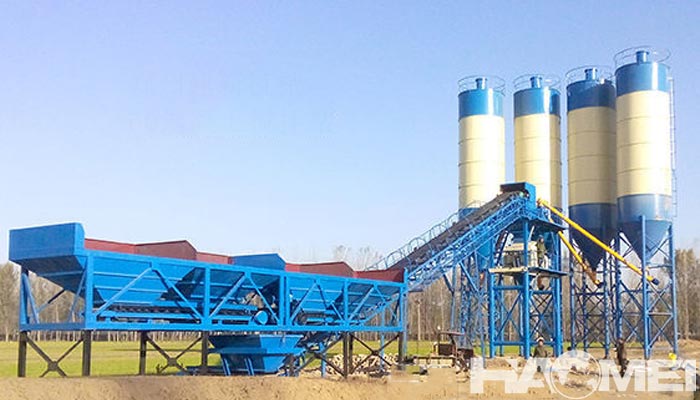Categories
- Case & News (50)
- Blog (567)
In today’s fast-developing construction industry, automatic concrete batching plant has gradually become the mainstream choice in the market by virtue of its high efficiency, precision and intelligence. In the field of construction engineering, automatic concrete batching plant as one of the core equipment, its price has been the focus of attention inside and outside the industry.

The automatic concrete batching plant price is not determined by a single factor, but is the result of multiple factors. First of all, the performance and technical content of the equipment itself is the basis of the price. Automatic concrete plant integrates automatic batching, mixing and discharging in one, with high technical complexity, and naturally the price will be increased accordingly. Secondly, market supply and demand will also affect the price. When market demand is greater than supply, prices tend to rise; conversely, they may fall. In addition, raw material prices, labor costs, and transportation costs are also important factors that make up the final price.
Advantages of automatic control of concrete batching plant:
Automatic concrete batching plant adopts advanced sensor technology and computer control system, realizing full automation from raw material batching to concrete mixing and discharging. This advantage not only significantly improves the production efficiency so that the concrete batching plant can work 24 hours a day, but also greatly reduces the labor cost. In addition, the automatic control system can accurately control the concrete mixing ratio, mixing time and other key parameters, effectively guaranteeing the stability and consistency of the quality of concrete, reducing the quality fluctuations caused by human factors, and improving the overall quality of construction projects.
Semi-automatic and fully automatic concrete batching plant price comparison:
From the price level, fully automatic concrete batching plant compared with semi-automatic equipment, the initial equipment cost is usually higher. However, this difference is gradually offset by the advantages of high efficiency, low consumption and high quality in long-term operation. Fully-automated concrete plants are easier to operate, reducing operator training costs and time; at the same time, their performance is more stable, with a lower failure rate, reducing maintenance costs and downtime. Therefore, taking into account the cost of equipment, operational efficiency, labor costs and other factors, fully automatic concrete batching plant has a higher cost-effectiveness in long-term operation.
Take a large-scale construction project as an example, which adopts a fully automated concrete batching plant for concrete production. During the execution of the project, the fully automated concrete plant not only significantly improved production efficiency, but also ensured the quality of concrete through precise control, effectively avoiding rework and delays caused by quality problems. In addition, the automated management system of the project also realizes real-time collection and analysis of production data, which provides strong support for project management and further improves the overall management level and profitability of the project.
In summary, although the automatic concrete batching plant price may be higher than semi-automatic equipment, its advantages in improving production efficiency, reducing labor costs, and guaranteeing product quality make it more cost-effective in long-term operation. With the continuous progress of science and technology and the continuous development of the construction industry, automatic concrete plant will become the mainstream choice in the future market. Therefore, for enterprises in the construction industry, investing in automatic concrete batching plant is not only an enhancement of current production efficiency, but also an enhancement of future market competitiveness.